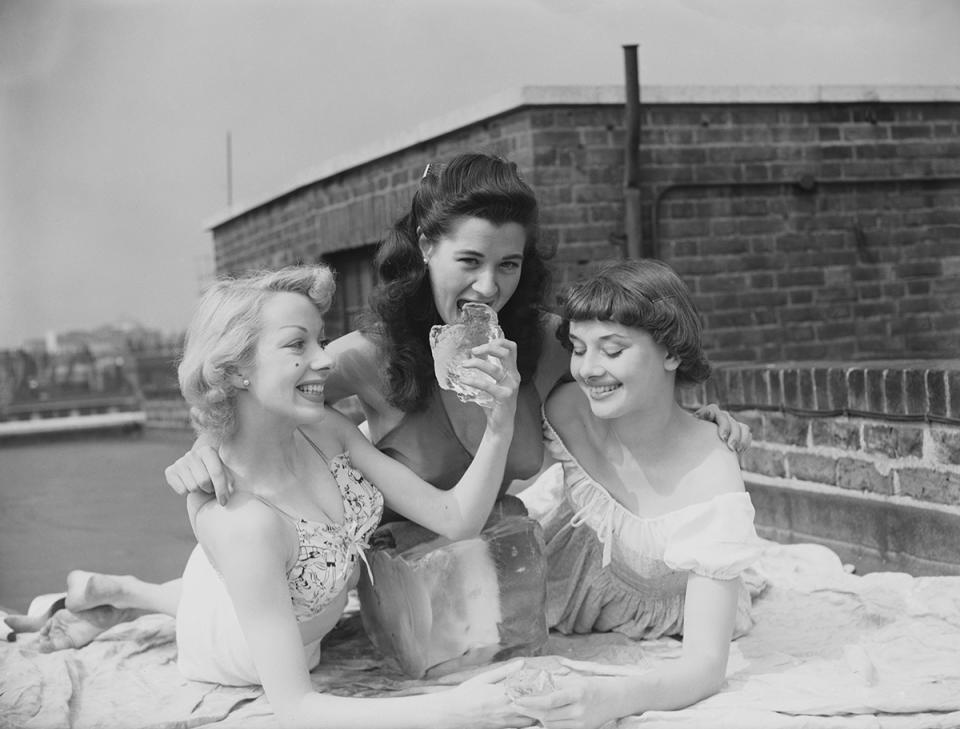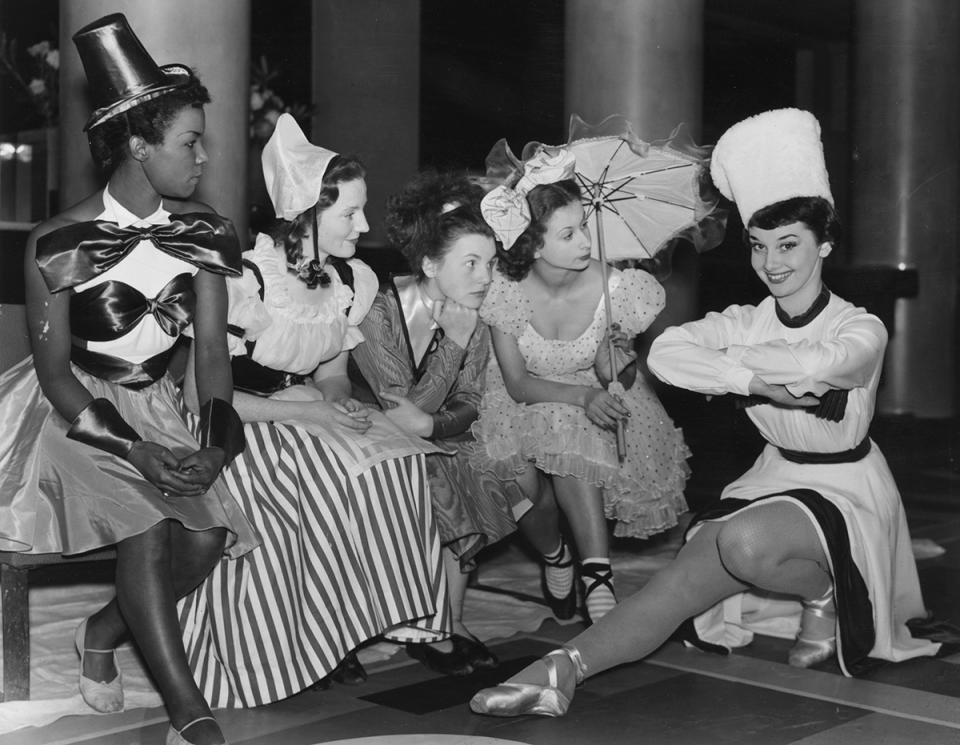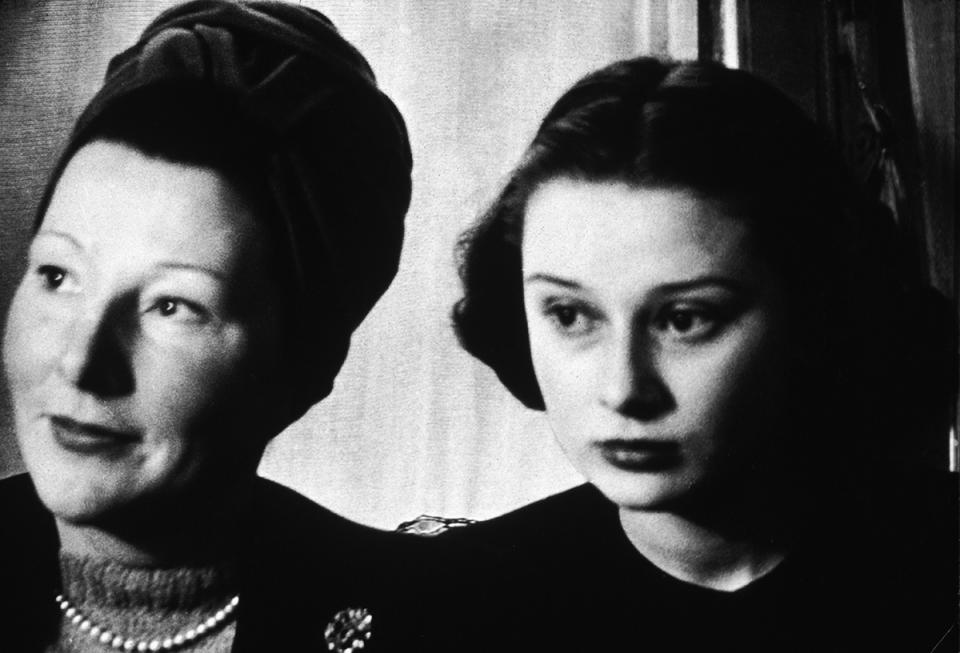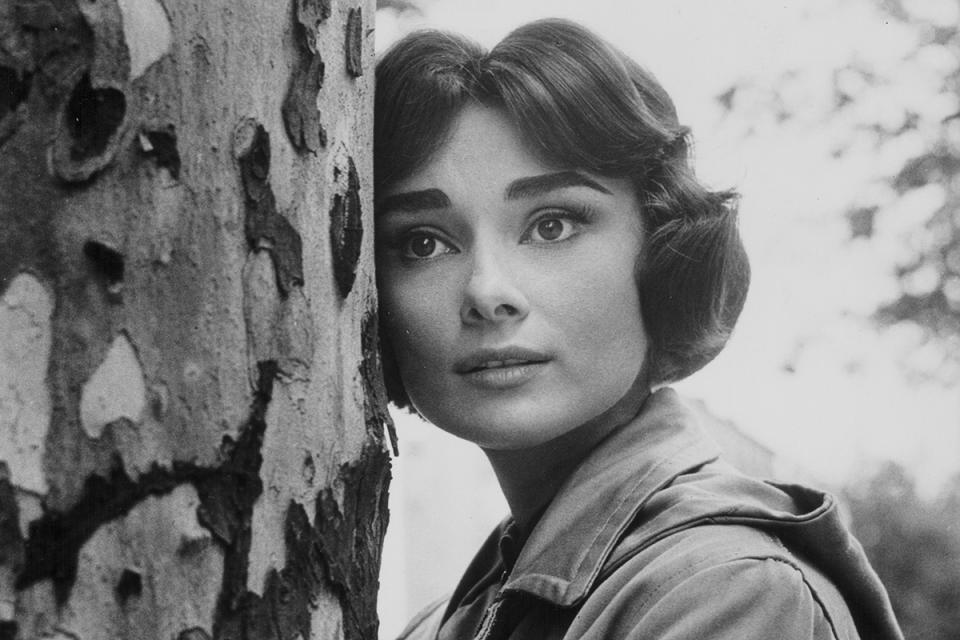Was Audrey Hepburn a WWII Spy? The Secret Life The Actress Led in Her Youth
- Oops!Something went wrong.Please try again later.
- Oops!Something went wrong.Please try again later.
You can look at Hollywood legend Audrey Hepburn as many things, ranging from a fashion icon to a dancer and, of course, a legendary actress appearing in numerous Hollywood classics like Roman Holiday, Gigi and Breakfast at Tiffany's, but Audrey Hepburn… spy? It's not the most-discussed aspect of her life, but it's something that's very true and perfect to note as we take a look at military heroes for Memorial Day.
Her father, Joseph Victor Anthony Hepburn-Ruston, was born in Uzice, Bohemia and was of Austrian and English descent; while her mother, Baroness Ella van Heemstra, was of Dutch descent. Audrey herself was born Audrey Kathleen Ruston on May 4, 1929 in Ixelles, Brussels, though when her parents divorced, she relocated with her mother to London. There she attended a private girls school, which she continued to do when they relocated yet again, this time to the Netherlands.
Life took an even nastier turn in May of 1940 when Hitler's army took control of the town of Arnhem, Netherlands, where Audrey and her mother were vacationing. It was there and then that the seeds for Audrey Hepburn spy were planted.
Robert Matzen, author of the biography Dutch Girl: Audrey Hepburn and World War II, points out that when he was researching his book, he was actually shocked to discover just how involved with the Dutch resistance Audrey Hepburn had been as a spy. As he notes, most people are unaware of the fact that she was nearly killed by bombs and bullets.
MUST-READ: The 10 Best Audrey Hepburn Movies, Ranked — Plus Where to Stream Them
"On more than one occasion, she was nearly captured by the Germans," he points out. "At the same time, there were periods where she nearly died from starvation. There was always some people saying that things weren't as bad for Audrey's family as they were for others, but that's not right: they were bad."

Ron Case/Keystone/Hulton Archive/Getty Images
Conducting interviews for Dutch Girl, there were people who lived in Arnhem who conveyed that life and death situations were a regular occurrence. He also discovered that when it came to the idea of Audrey Hepburn spy, many other biographers have stated that she couldn't have done much given that she was only 14 or 15 at the time.
"In that war, children grew up awfully fast," details Matzen, "and the resistance relied on children and young people, because the Germans didn't suspect them. That fact put Audrey squarely in harm's way, doing things on behalf of the resistance, running messages, delivering the underground newspaper and dancing to raise money."

Keystone/Getty Images
Fellow Audrey Hepburn biographer Victoria Loustalot, author of Living Like Audrey: Life Lessons from the Fairest Lady of All elaborates, “Midwives and children were seen as non-threatening to the Germans; you wouldn’t think they were spies or anything, so they got away with things. Audrey could ride her bike places and the resistance knew that she was unlikely to be questioned in the same way that maybe an adult male — or even a teenage boy — might have been."
MUST-READ: 16 Surprising Behind-the-Scenes Facts About My Fair Lady
"Sometimes," Loustalot adds, "I wonder if that period from such a young age of needing to learn how to survive, to charm or distract to have people look the other way and not be suspicious of her, played a part in this timeless appeal that she has to so many of us.”
Points out Matzen, “Audrey would call what she did small things, but they were very important, like the effort to shelter a British paratrooper in their cellar, which she was very proud of. That’s something that had never come to light until her son told me that.”
Audrey Hepburn spy had to 'resist' her parents as well

Hulton Archive/Getty Images
Some of Audrey's greatest pain as a young woman came from the fact that both of her parents, working for the British Union of Fascists, recruited and collected donations for the group. In 1935, her father moved to London — cutting off contact with his family — and became more involved with the BUF's activities.

Archive Photos/Moviepix/Getty Images
"She didn't have much of a relationship with her father, but she did try to maintain one with her mother," says Matzen. "But the burden was really a heavy one. What both parents had been up to before the war was something that just hurt her. I would not be surprised if it shortened her life.
MUST-READ: Funny Face — 16 Wild Facts About the 1957 Audrey Hepburn and Fred Astaire Musical
"All the stress of what her parents had been, all the anger at what they had done, was a tremendous burden for her to carry around all her life. It was no secret that her father had been pro-Nazi and spent the entire war in a British prison, but her mother's secret was one that Audrey felt the burden of protecting. She didn't agree with what her parents had done, but she had to protect her mother. That was the way the van Heemstras did things."
Another things he emphasizes is that even though the actress was an introvert by nature, when it came to the war, she was much more of a "closed book."
"She was afraid her mother's pro-Nazi past would come out," he says. "That was one thing. Another is that she was raised to never boast about herself; to always give other people the attention and never herself. So there's another reason she wouldn't talk about the war — she didn't want to risk coming off as gloating. You know, 'I did this in the war; I did that in the war.' She kept these things to herself, which is why her son, Luca, was so thrilled with the book, because he finally learned what his mother went through. He said he would have to stop reading and cry regularly, because he had no idea."

